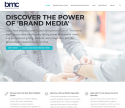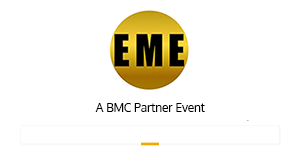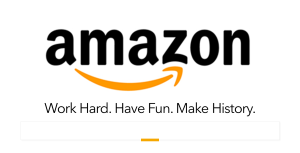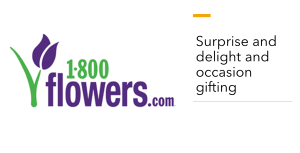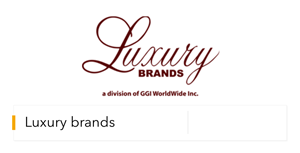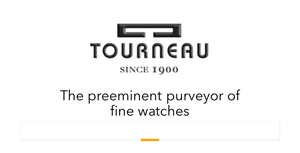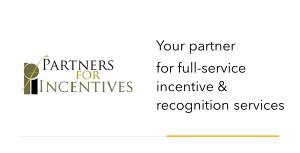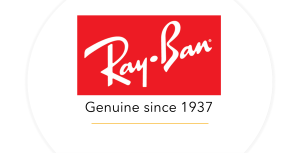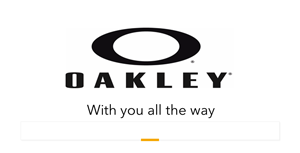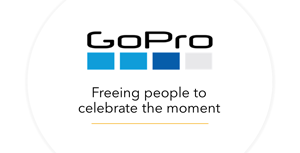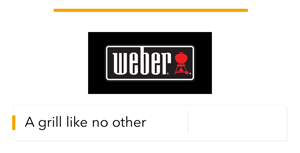IRF Report Analysis Drivers of Engagement in the New Workplace
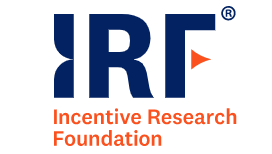
Based on recent surveys of employees and an analysis of academic research, these authors suggest how organizations can more effectively engage employees in the new world of work-from-home (WFH).
Engagement Begins With a Supportive, Trusting Culture
Hybrid Work Is Here to Stay
A New Approach to Group Travel
“Incentives and rewards can play an important role in overcoming the challenges of managing a remote workforce. In particular, providing channels of communication, offering experiential, face-to-face rewards, providing frequent manager and peer recognition, and demonstrating concern for employee well-being with time-off rewards, and/or access to wellness resources, will help address loneliness and burnout.”
These are among the key conclusions of the recent Incentive Research Foundation study, “Decentralized Workforce: Fundamental Driversand Engagement In The New Workplace,” by Allan Schweyer, Co-Chief Research Director of the Incentive Research Foundation and Angela Fan, Emily Ford, Ji Hyoung (Genie) Kang, and Alexey Kushnir, PhD at Carnegie Mellon University.
Engagement Begins With a Supportive, Trusting Culture
While incentives play an important role, the authors say their results also “highlight the importance of developing a supportive, respectful, and trusting culture. Developing this environment will not only address the key concerns around remote work, but it will also boost the effect of incentives and rewards. Incentive program designers should work together with managers to increase communications, collaboration, trust, and overall motivation.”
Based on surveys of 2,000 participants in spring 2022, additional background research, and interviews with ten incentive industry experts, the authors identify “the key challenges associated with remote work and the corresponding incentives best suited to address them. According to our survey respondents, issues around communications, collaboration, isolation, and FOMO – the fear of missing out on information, opportunities, and promotions – represent the most important challenges faced by remote workers and their managers.” (Editors note: EEA Founder Bruce Bolger was among the 10 industry representatives consulted.)
Nearly 50% of surveyed employees report that remote work results in less communication with their managers and nearly 80% report less communication with colleagues.
Furthermore, over 45% of respondents (managers and employees) reported feeling less connected to their organizations. This finding aligns with previous studies showing that remote workers feel an increased sense of alienation and loneliness. “As far as what motivates people, it isn’t necessarily the reward that motivates as the connection with the organization – their manager and colleagues – that’s what drives them more than anything else, the award is just an expression of thanks in many cases,” observes one of the expert contributors.
Over half (55%) of the survey respondents indicate that they would prefer to work remotely full-time. To do so, 9% reported their willingness to take a pay cut of up to 10%.
Hybrid Work Is Here to Stay
The authors conclude that hybrid work is here to stay, despite efforts of some companies to bring people back full time. “Flexible and remote work can no longer be considered rewards in themselves. Rather, for many workers, they are an expectation – conditions of work that influence whether they join a firm or stay. Thus, other rewards and incentives are needed to engage and motivate remote workers; to foster remote worker communications and collaboration, and to encourage employees to come together (virtually and in-person) at a frequency that serves their needs and those of the firm.”
The authors identify the best ways to engage a remote workforce and those factors they believe contribute most to an effective hybrid experience. Each, they say, can be driven and reinforced by tangible incentives that recognize and reward desired behaviors among managers and employees.
- Interesting work and the granting of trust and autonomy (including flexible and remote work)
- Frequent interaction with direct managers
- Online tools to boost recognition and appreciation
- Cash, points, and open-ended gift cards
- Time off
- Travel
- Experiences (i.e., dinner for two)
- Gifts presented by the manager
The experts interviewed “emphasize tangible rewards like travel, meetings, experiences, and points-based recognition platforms as most vital in encouraging communications and collaboration among the remote/hybrid workforce.”
A New Approach to Group Travel
The authors believe that the WFH movement requires a new approach to group incentive travel. “Whether the goal is to build new relationships or strengthen existing ones, interviewees explain that smaller and more intimate group travel programs facilitate better connections.”
For instance, one expert recounts, “At this year’s group incentive travel event, instead of a plenary welcome reception we did regional receptions. We broke it up into six regional receptions giving people more time to connect with those from their region and find a friend. People loved it. It gave them a chance to meet in smaller groups instead of in one large general session. We had the event at one resort but broke almost half of it out by region. Again, this helped people connect, feel recognized, and have more conversations with leadership. It may have made them feel safer too.”
Taking the concept even further, “We have created several programs to break our employees into smaller cohorts across functions, including sales, marketing, operations, finance, research, etc. These smaller teams and groups make better use of live and virtual connections, through happy hours, coffee time, trivia hours, volunteering, group travel, and other opportunities to connect.”
The report concludes: “The vast majority of organizations we work with have a large percentage of their employees working remotely. Some are moving people back to the office, but it will never come back to what it was. Direct and indirect incentives are needed to balance this new reality; to keep remote workers connected, engaged, included, and productive.”
For the latest news delivered by via email, subscribe here.
Education, Certifications, and Information to Activate
Brand Media and Enterprise Engagement
A complete learning, certification, and information program and a course syllabus for educators.
Resources: The Brand Media Coalition, the only guide to the story-telling power of brands and where to source them for business, event, promotional gifting, and rewards and recognition. Enterprise Engagement Solution Provider Directory. The only directory of engagement solution providers covering all types of agencies and tactics as well as insights on how to select them.
Communities: The Enterprise Engagement Alliance and Advocate and the Brand Media Coalition free resource centers offering access to the latest research, news, and case studies; discounts, promotions, referrals, and commissions, when appropriate to third-party solution providers from participating coalition solution provider members.
Training and Certification
Enterprise Engagement Alliance Education: Certified Engagement Practitioner; Advanced Engaged Practitioner, and Certified Engagement Solution Provider learning and certification programs on how to implement Stakeholder Capitalism principles at the tactical level.
International Center for Enterprise Engagement: The only training and certification program for ISO 30414 human capital reporting and ISO 10018 quality people management certification.
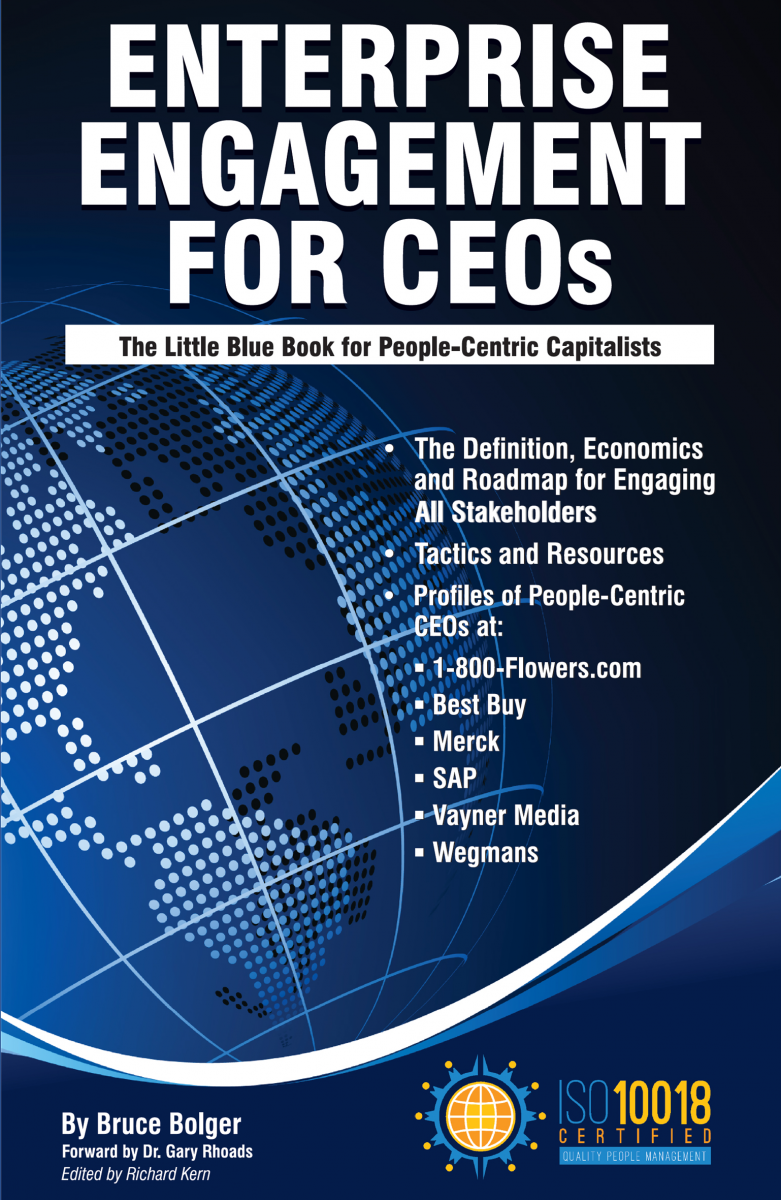
The EEA offers a complimentary course syllabus for educators.
In Print:
This is the definitive implementation guide to Stakeholder Capitalism, written specifically to provide CEOs and their leadership teams a concise overview of the framework, economics, and implementation process of a CEO-led strategic and systematic approach to achieving success through people. (123 pages, $15.99)

The first and most comprehensive book on Enterprise Engagement and the new ISO 9001 and ISO 10018 quality people management standards. Includes 36 chapters detailing how to better integrate and align engagement efforts across the enterprise. (312 pages, $36.)
Online:
10-minute short course: click here for a 10-minute introduction to Enterprise Engagement and ISO standards from the Coggno.com learning platform.
Services:
• The Engagement Agency at EngagementAgency.net, offering: complete support services for employers, solution providers, and technology firms seeking to profit from formal engagement practices for themselves or their clients, including Brand and Capability audits for solution providers to make sure their products and services are up to date.
• C-Suite Advisory Service—Education of boards, investors, and C-suite executives on the economics, framework, and implementation processes of Enterprise Engagement.
• Speakers Bureau—Select the right speaker on any aspect of engagement for your next event.
• Mergers and Acquisitions. The Engagement Agency’s Mergers and Acquisition group is aware of multiple companies seeking to purchase firms in the engagement field. Contact Michael Mazer in confidence if your company is potentially for sale at 303-320-3777.
Enterprise Engagement Benchmark Tools: The Enterprise Engagement Alliance offers three tools to help organizations profit from Engagement. Click here to access the tools.
• ROI of Engagement Calculator. Use this tool to determine the potential return-on-investment of an engagement strategy.
• EE Benchmark Indicator. Confidentially benchmark your organization’s Enterprise Engagement practices against organizations and best practices.
• Compare Your Company’s Level of Engagement. Quickly compare your organization’s level of engagement to those of others based on the same criteria as the EEA’s Engaged Company Stock Index.
• Gauge Your Personal Level of Engagement. This survey, donated by Horsepower, enables individuals to gauge their own personal levels of engagement.
For more information, contact Bruce Bolger at Bolger@TheEEA.org, 914-591-7600, ext. 230.



